GRIZLI777 Business and Corporations Law Assignment - Legal Issues
VerifiedAdded on 2023/01/11
|5
|1085
|38
Homework Assignment
AI Summary
This document provides a comprehensive analysis of several legal issues arising in a business context, specifically focusing on contract law. The assignment addresses four key scenarios: the impact of mutual mistake on contract enforceability, the consequences of offer revocation, the implications of signing a contract by mistake, and the determination of whether a displayed item constitutes an offer or an invitation to treat. The analysis utilizes the ILAC method (Issues, Law, Application, Conclusion) and examines relevant legal principles, including the concept of mutual mistake as established in Raffles v Wichelhaus, the rules governing offer and acceptance in postal communication as highlighted in Adams v Lindsell, and the defense of 'non est factum'. The document applies these legal principles to the given scenarios, providing reasoned conclusions on the enforceability of contracts and the rights and obligations of the parties involved. The assignment concludes with a summary of the findings and includes a list of cited references.
1 out of 5
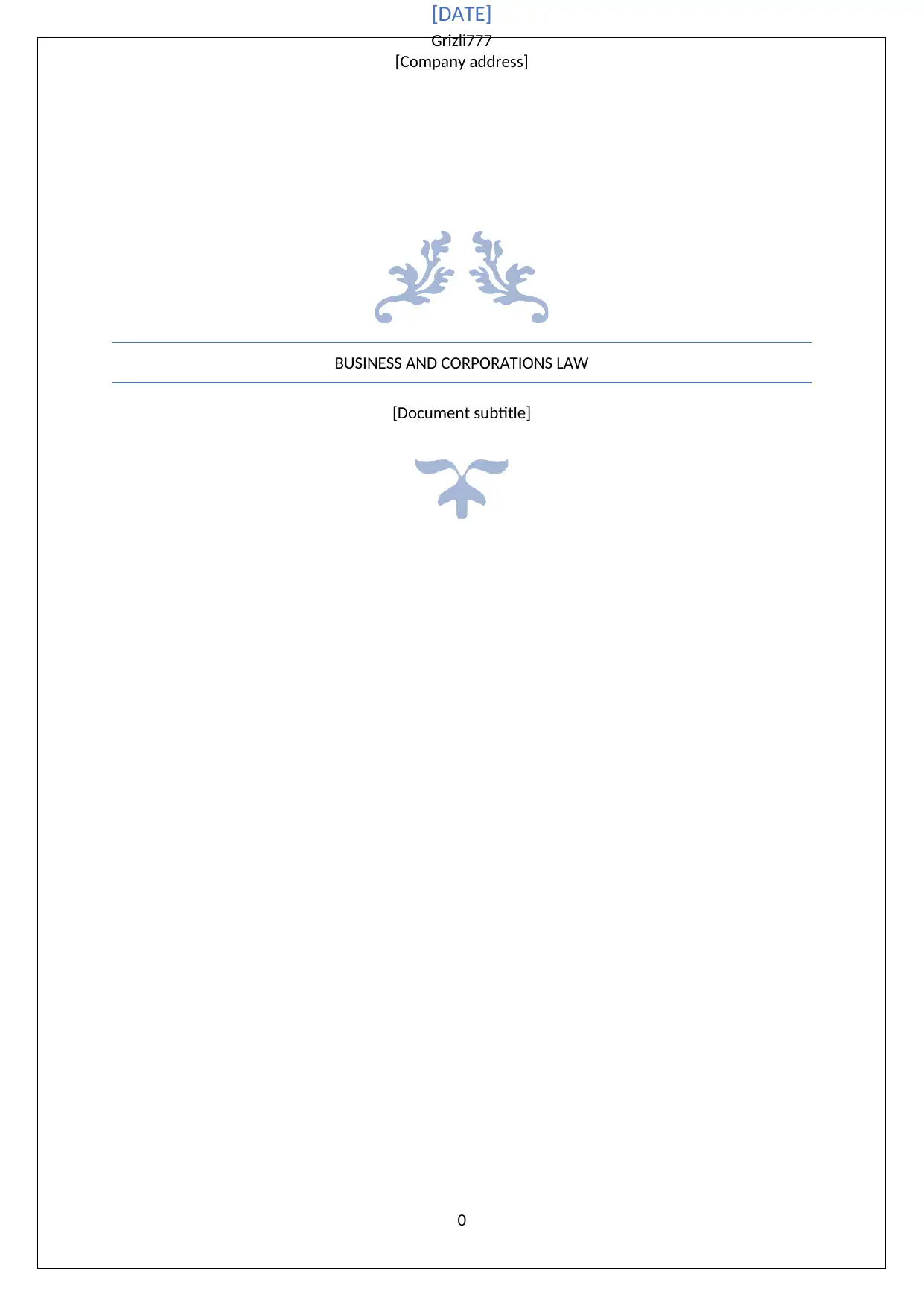
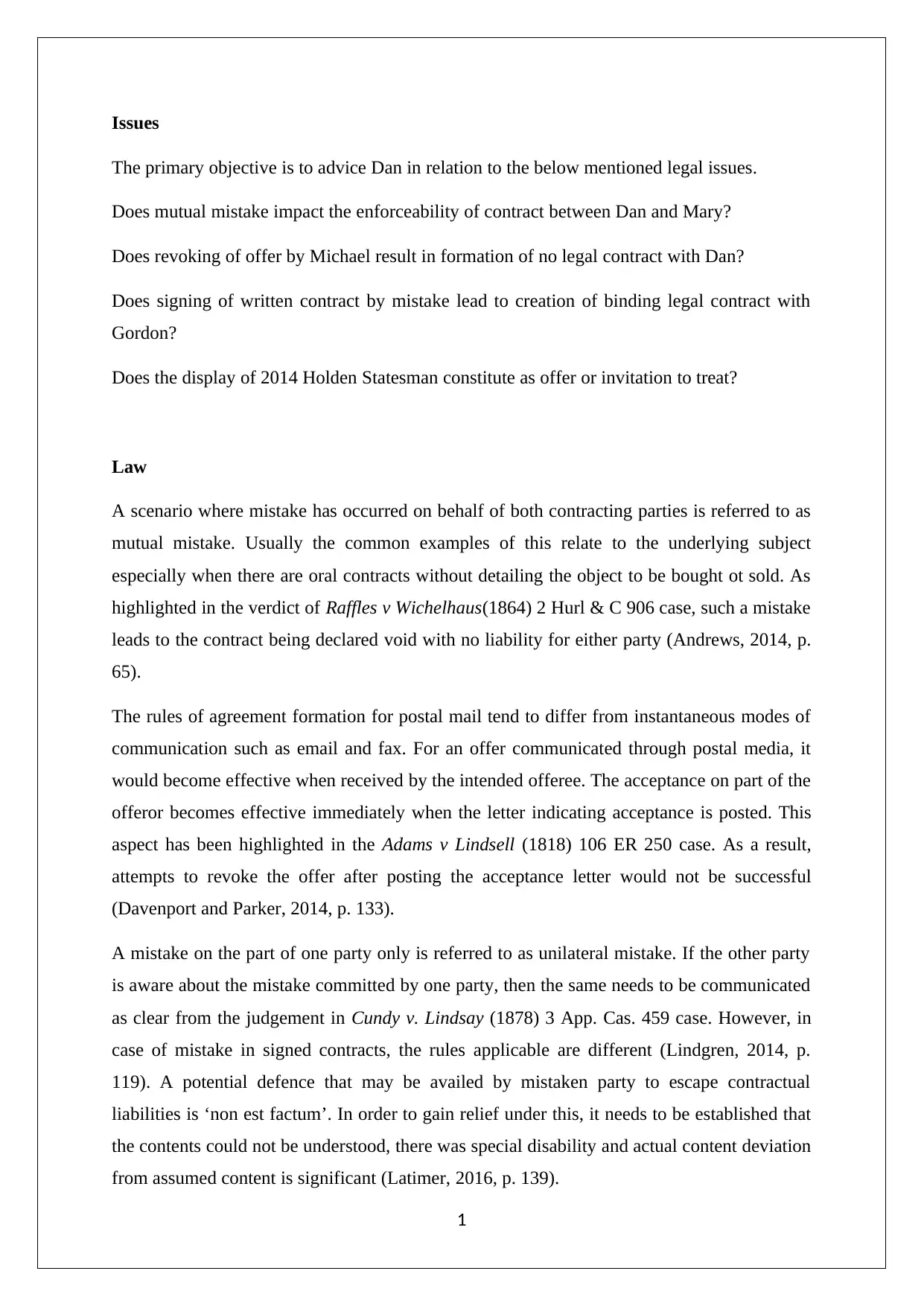
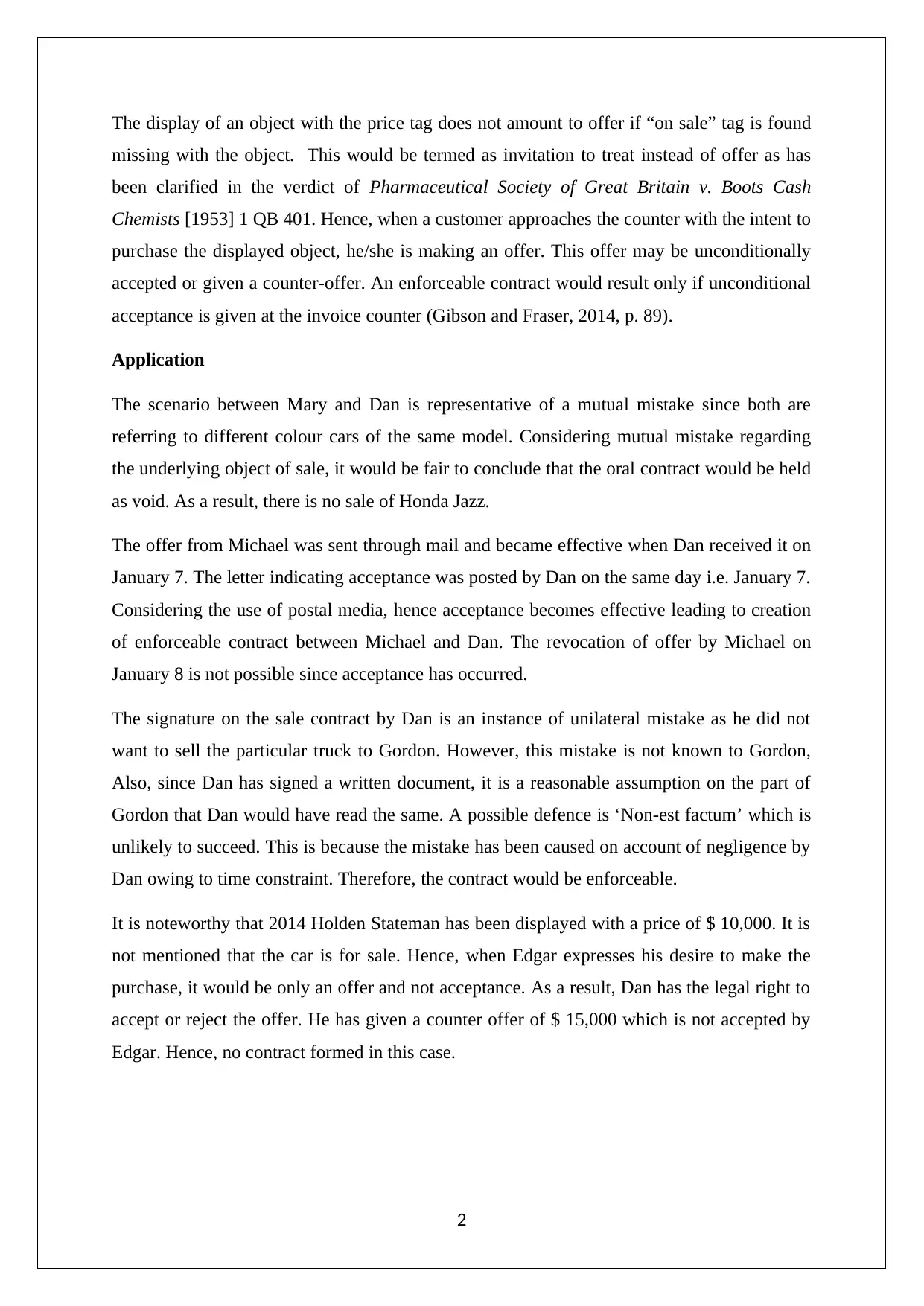

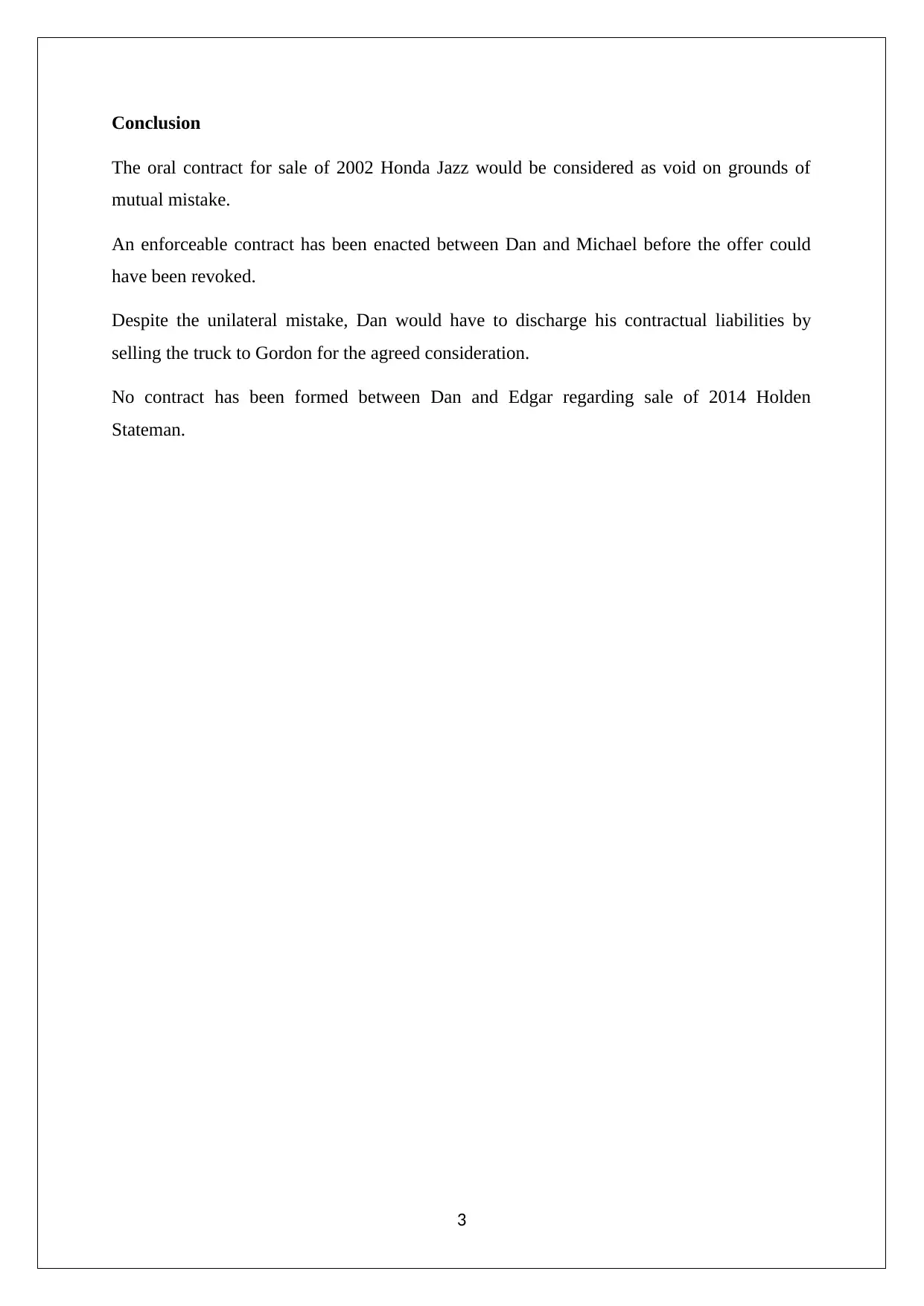
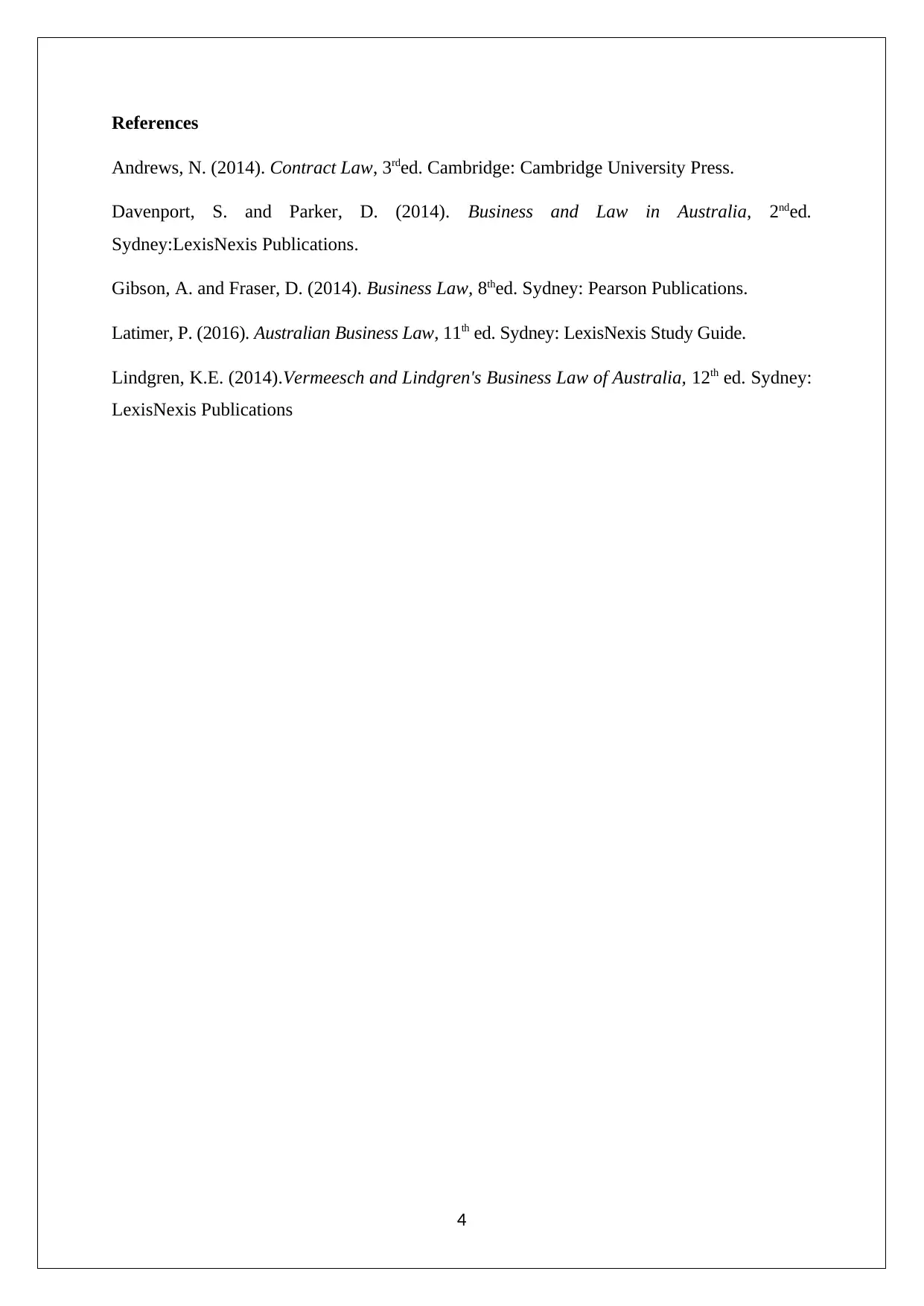





![[object Object]](/_next/static/media/star-bottom.7253800d.svg)